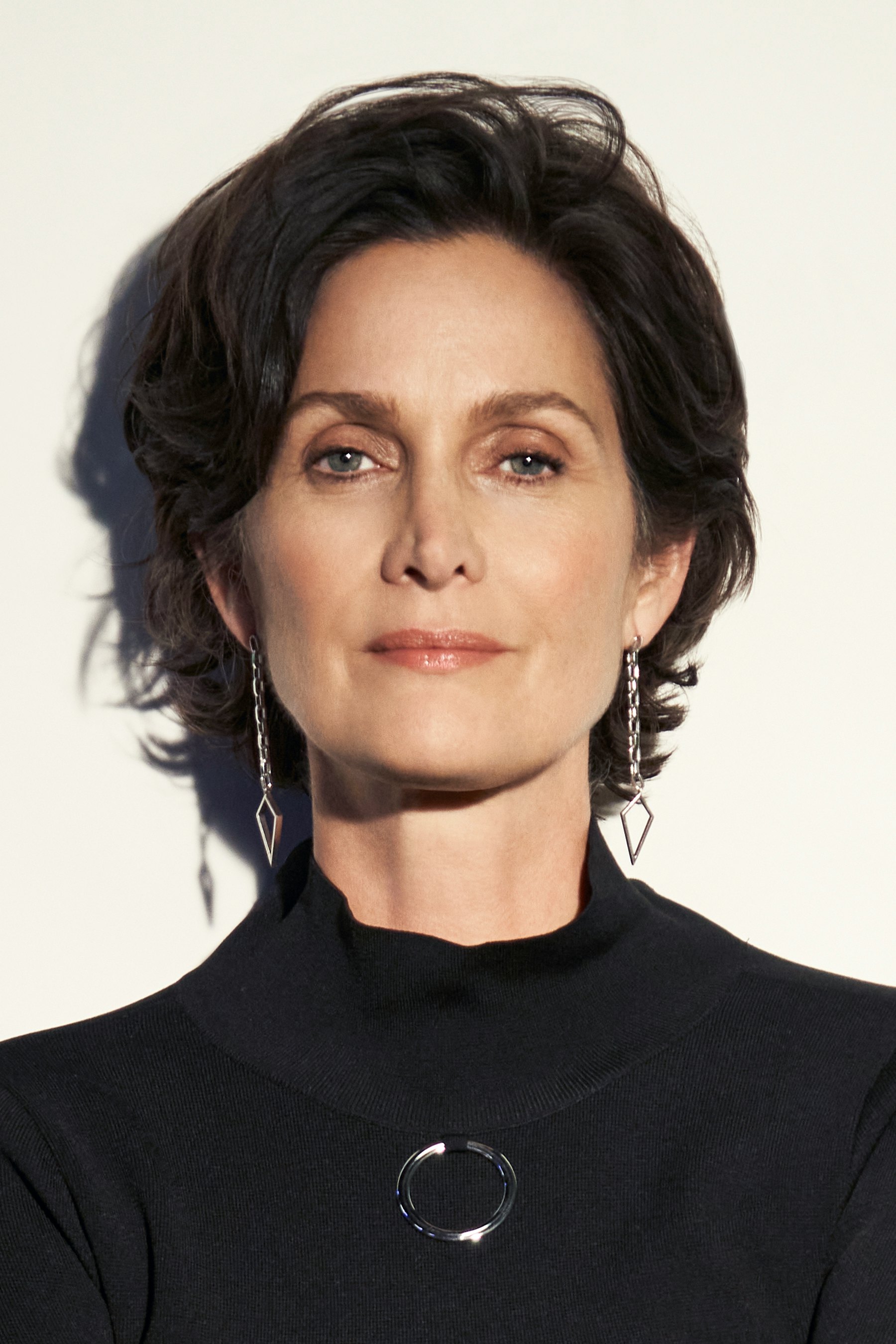
“I’ll be honest, I'm not into zombie shows or zombie movies or apocalyptic movies,” Carrie-Anne Moss tells Inverse. “It's not really my thing.”
I believe her. Speaking over Zoom from her home in New Hampshire, Moss looks content and comfortable in a dark black sweater. It’s a sunny fall day and I can see a mix of red and yellow New England foliage on the trees framed by the window behind her. There’s probably a fireplace crackling somewhere not too far offscreen.
It’s all a very far cry from her character in the new zombie thriller Die Alone, which releases today. Moss plays Mae, an apocalypse-hardened warrior who takes in a young man with amnesia named Ethan (Douglas Smith) and protects him from both the undead and human ravagers.
As the kids might say, Carrie-Anne Moss is apocalypse mommy. Except, as we’ve already established, Moss isn’t a fan of apocalypse movies. So how did she end up in this one?
Moss offers two reasons for her embrace of the apocalypse genre. First, she doesn’t really see the movie as a zombie thriller. Instead, at its heart, Die Alone, is about the relationship between Mae and Ethan — which might be more complicated than it seems. But above all that, she simply jumped at the opportunity to play such a total badass.
“I wanted to be in the shoes of that woman,” Moss says. “She's just so cool.”
Moss has been playing cool, badass women since 1999 when she delivered a slow-motion flying kick to Hollywood as Trinity in The Matrix. A year later, she played a small but memorable part in Christopher Nolan’s breakout hit Memento. More recently, she joined Star Wars as Jedi Master Indara in The Acolyte. We cover all that and more in the conversation below.
This interview has been edited for brevity and clarity.
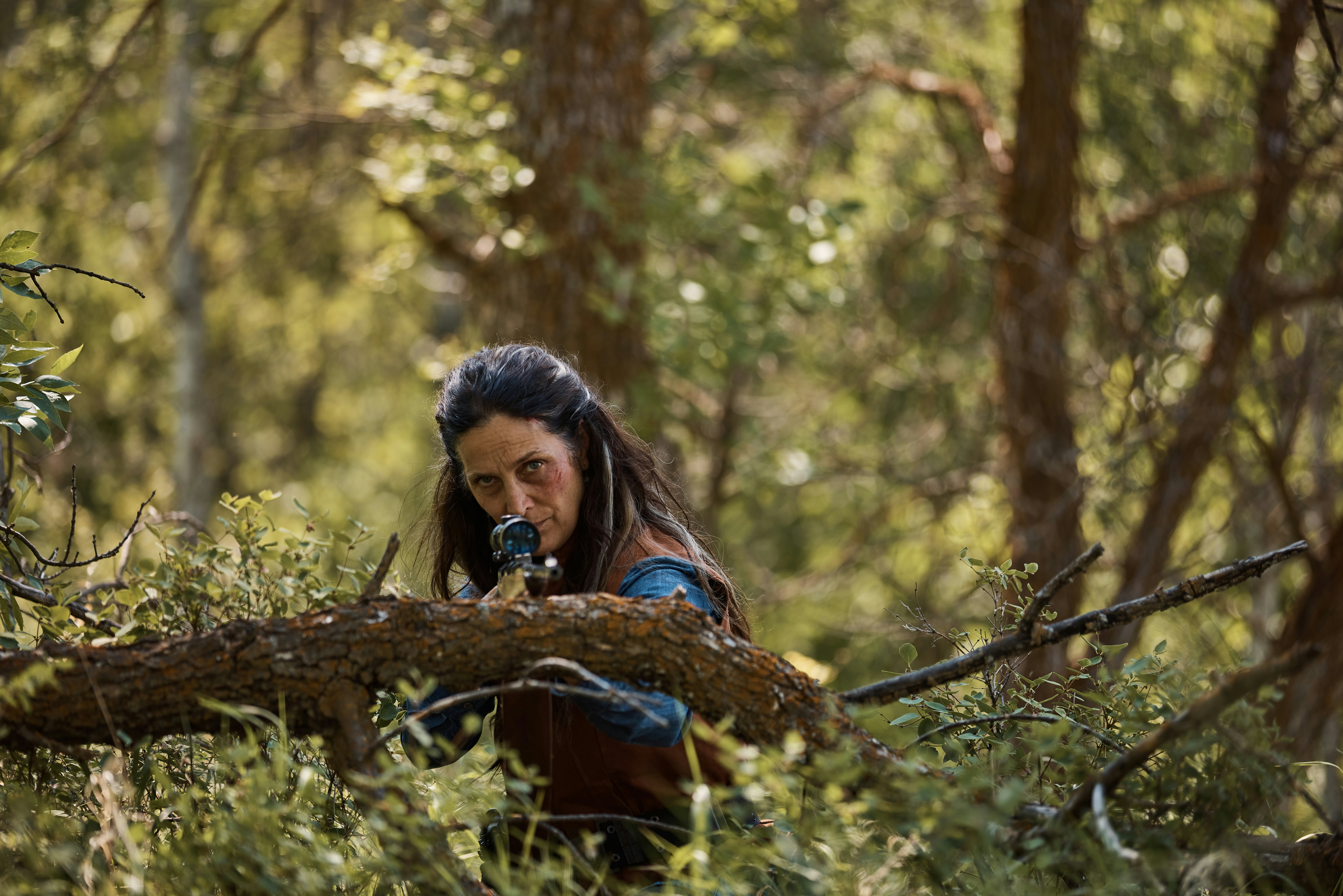
Hi, Carrie-Anne Moss! So I watched Die Alone — I actually watched it twice — and I really enjoyed it. How did you wind up in this movie?
I have a manager. Her name is Elizabeth Hodgson and she's been my manager for my whole career, over 30 years. So it came to her with interest for me to play the role of Mae. She read it first and said, “You’ve got to read it. I think you're going to love it." I loved it right away, and then I talked to Lowell Dean, who wrote and directed it, and it was easy talking to him right away.
It was quite difficult to get it made. We finally filmed it two summers ago in Saskatchewan, and it was just really a great experience. I loved playing her.
The premise of the movie is really interesting. Basically, nature is reclaiming the Earth from humans by spreading this zombie virus that turns people into plans. What did you think of that concept?
To be honest, I'm still not 100% sure. There was this illness or something where people would have fibers coming out of their bodies that reminded me a little bit of this. They thought these people were having psychosis because they felt like things were growing out of their skin, but they found out it was actually an illness that people get. I had read that in something, I forget where. But I remember thinking, “Oh, this is sort of an extreme version.” So I did feel like it could be rooted in some reality.
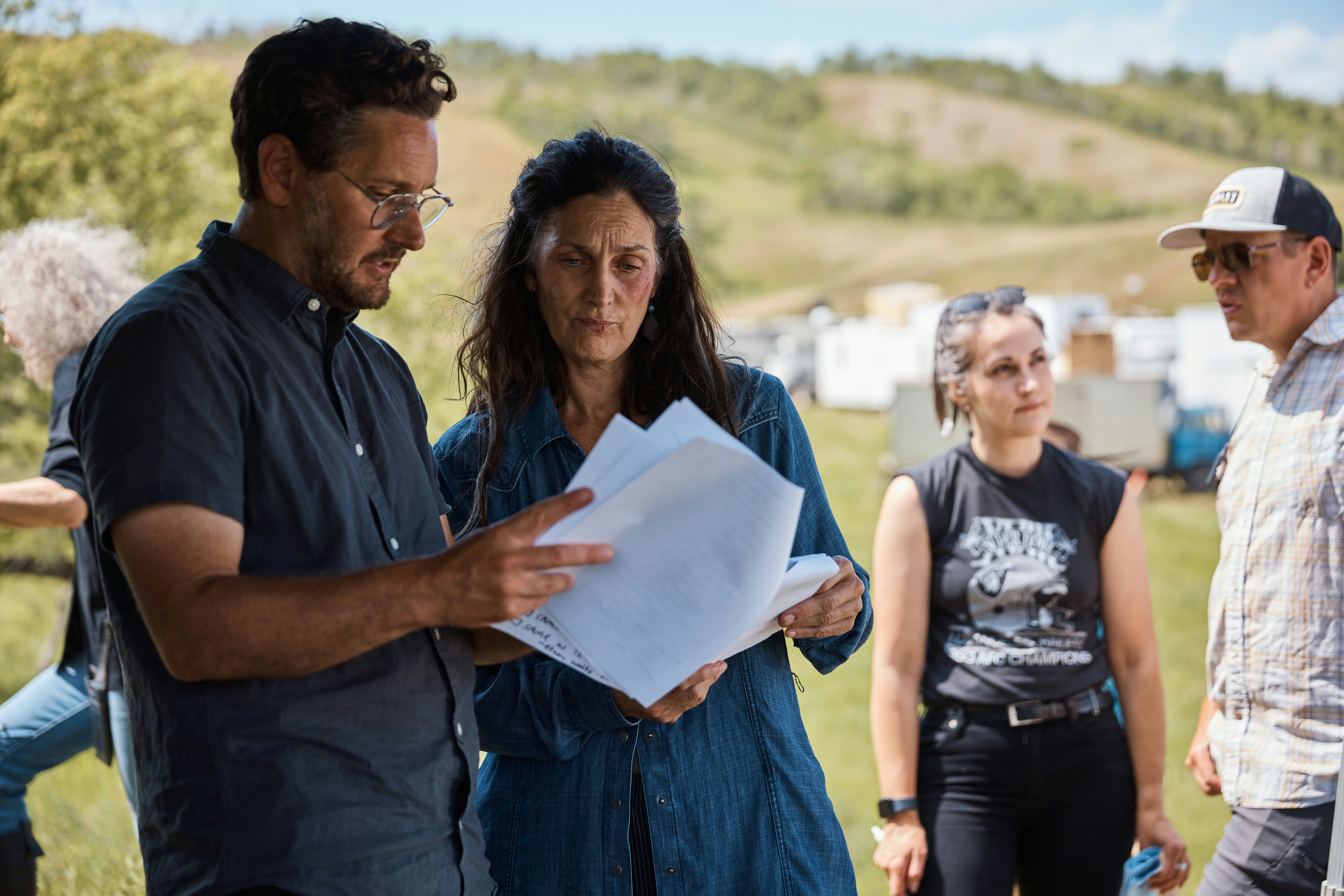
Moving to The Acolyte, you played a Jedi Master in the new Star Wars show and it was fun to see you doing martial arts-style combat again. What was that like? Were you conscious of trying to make it different from The Matrix?
It's been a long time since I did the martial arts in The Matrix so I wasn't trying to make it the same or different. I was just trying to tell the story. The martial arts team and stunt team choreographed the fight, and then I came in and tried to do my best.
But it’s interesting because, after it came out, people were like, “Oh, Trinity’s a Jedi,” and I was surprised by that. I know that sounds naive, but it didn't cross my mind. It's been so long since I played Trinity in that way, because in Resurrections, I don't fight that much.
It’s really hard to learn the choreography. That's probably the hardest part. On the day it’s actually much easier because you're just doing little pieces, maybe four beats. So it's easier than training it, learning it, and doing it over and over and over and over and over again. Plus you have the adrenaline, you're in costume, it's exciting. The lighting's there. So I loved that. I think it took me about a week to shoot that scene in The Acolyte and it was really fun.
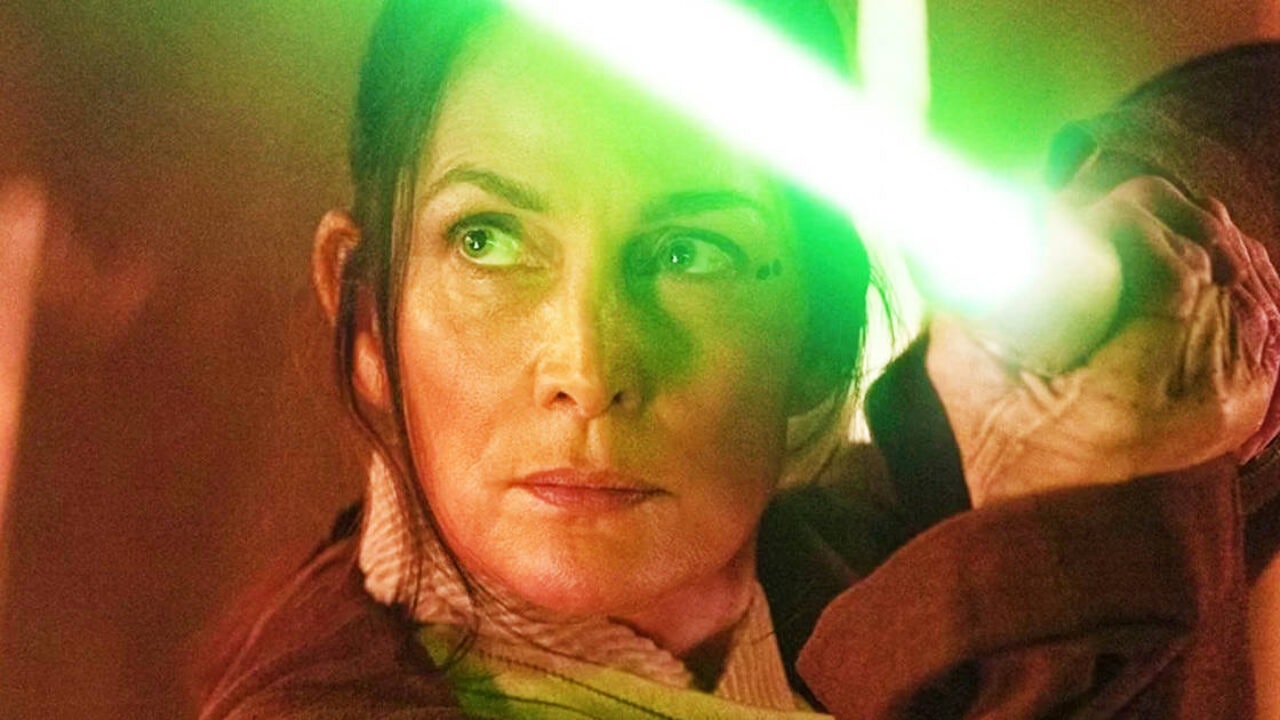
We only get a bit of your character in The Acolyte. Would you be interested in bringing her back in another Star Wars show or movie?
I honestly don't entertain any of that. It's not worth it. I don't sit around going, “Oh, I wonder if...” I just don't give myself even a minute because it's not my reality right now. So who knows? I'm glad you liked it and I loved playing it. So that's cool. That's the main thing. That's what I kind of feel.
That makes sense. I did want to ask about the show’s cancellation. Do you have any opinion on that? Do you think there should be an Acolyte Season 2?
Not really. It's funny, I live in a very rural town and I was at my daughter’s school and I was getting a coffee and one of the dads was like, “Oh, I'm so sorry. Your show got canceled.” I didn't even know. I never even thought it was going to continue. I don't really think about it. I don’t know the buzz on the street or gossip. I don't even know where you would find that. Social media, maybe. But I don't pay much attention. It's not worth it. It's wasted time.
I think that's a good approach, honestly.
Yeah, it protects me.
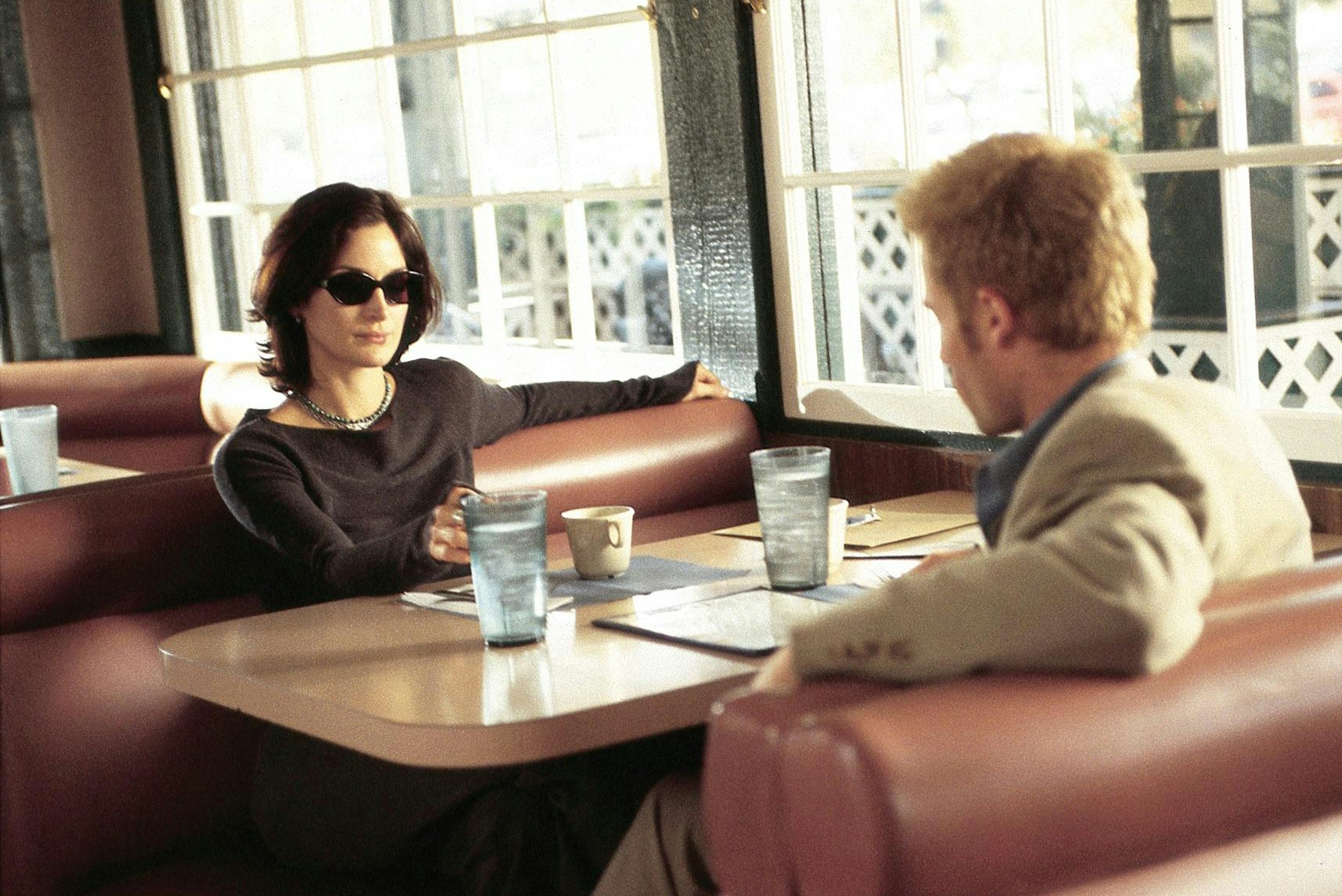
I was looking back at Memento, which you’re also great in, and it got me thinking about how a lot of the characters you play could be described as mean. You’re pretty mean to Guy Pearce’s character in Memento, and Mae can be pretty mean in Die Alone—
So do I like playing mean people?
That's the question. Yeah.
Well, I loved playing Natalie in Memento and I guess I never saw her as being mean. You have to always think about: What do you need in this story? What do I want? Even with Jeri Hogarth in Marvel, you could say she was mean, but I always thought she wanted something all the time. And I felt that way with Natalie as well.
So yeah, that one scene in Memento, because it’s really just that one scene where you see her walk out, you don't really know what's going on, and she’s sitting in the car after he’s hit her — she's made him hit her — and then she comes back in and has that whole thing. When I read that scene in the script, that's when I said, “I have to play this part.” When would you ever do anything like that in your life? Never. Right? Never.
Hopefully not.
It's very freeing to play people who are so different than you. The cruelty of her. There’s not really any right way to play that. It’s just kind of out there.
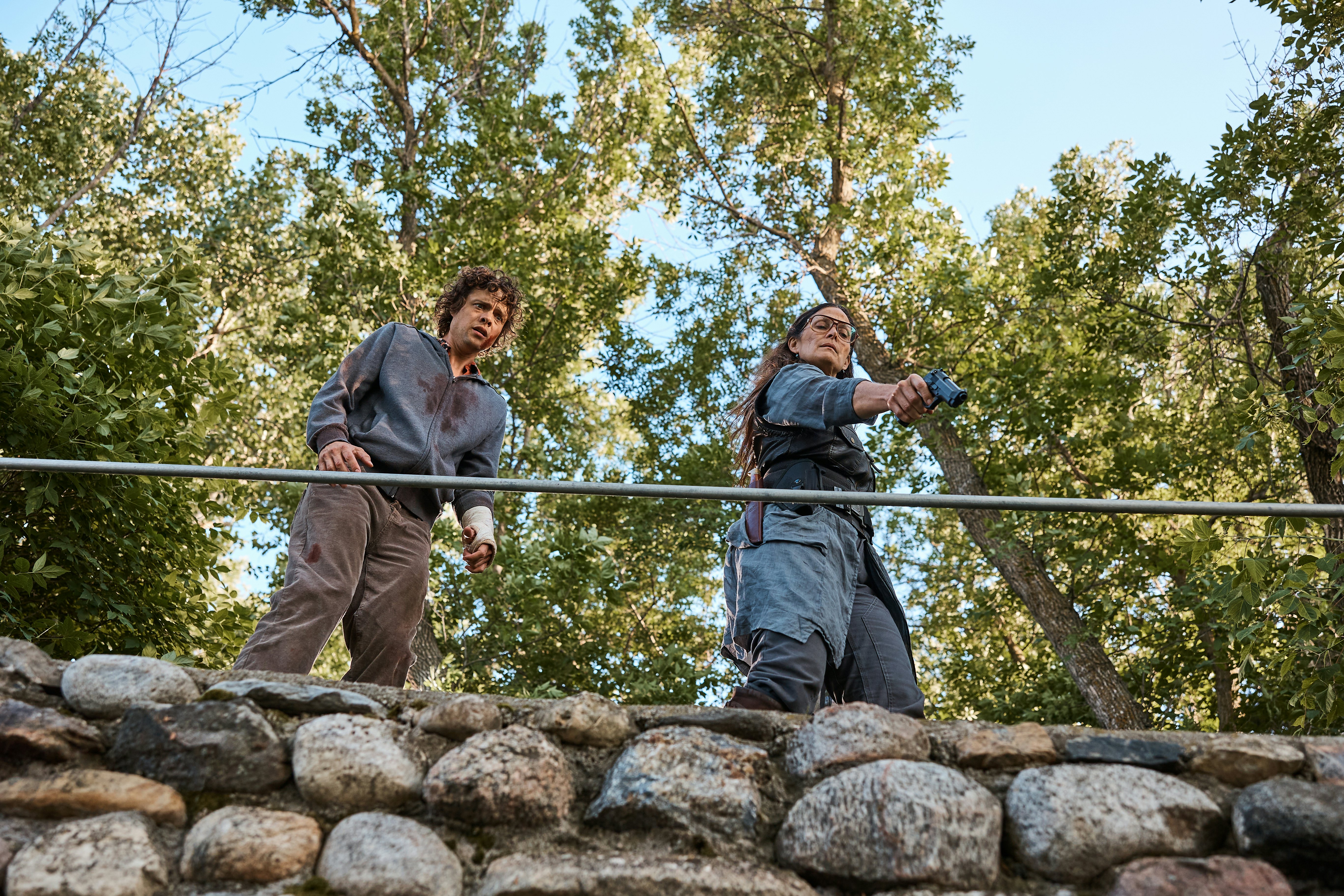
You started your career doing a lot of smaller TV roles. I think what's changed since then is that the way TV is made is very different. Look at The Acolyte, it's like eight episodes and that's it, versus 20-episode seasons. What do you think of that shift? Do you think it makes it more difficult for someone to break into the industry the way that you did?
The business has changed so dramatically since I started. If someone says to me, “Hey, I've got a child that really could use some advice,” I'm like, “Oh, I'm not the person.” Honestly, I have no clue.
When I started, there was such a hierarchy between television and film. And then suddenly TV became something where you’re no longer doing just network TV with 22 episodes. Suddenly you're doing a 10-episode or an eight-episode arc.
Now, I think our biggest concern is AI and what it could potentially do to the business. We’re at a moment where everything's changing and I don't know what this business is going to look like in two years, three years. I don't know if I'd want to be starting in it at this point.







